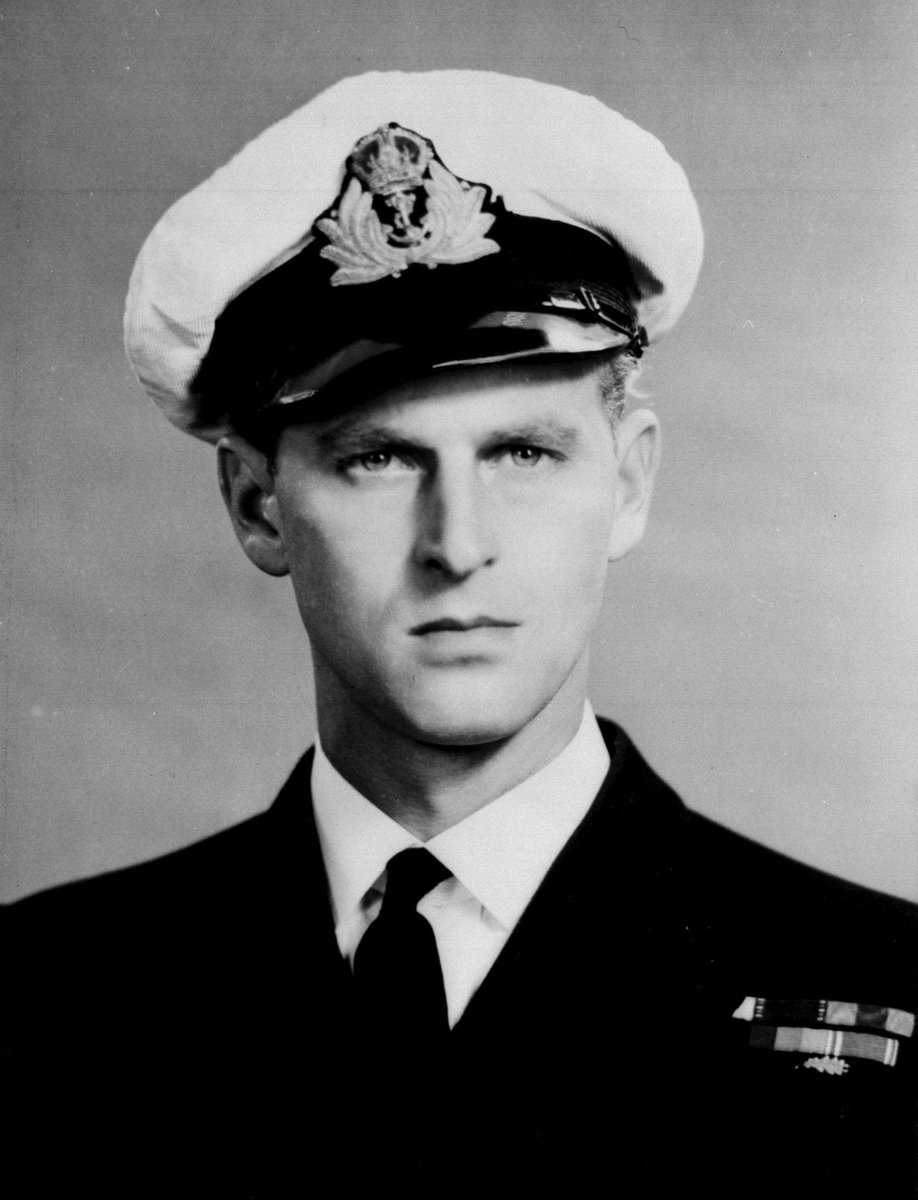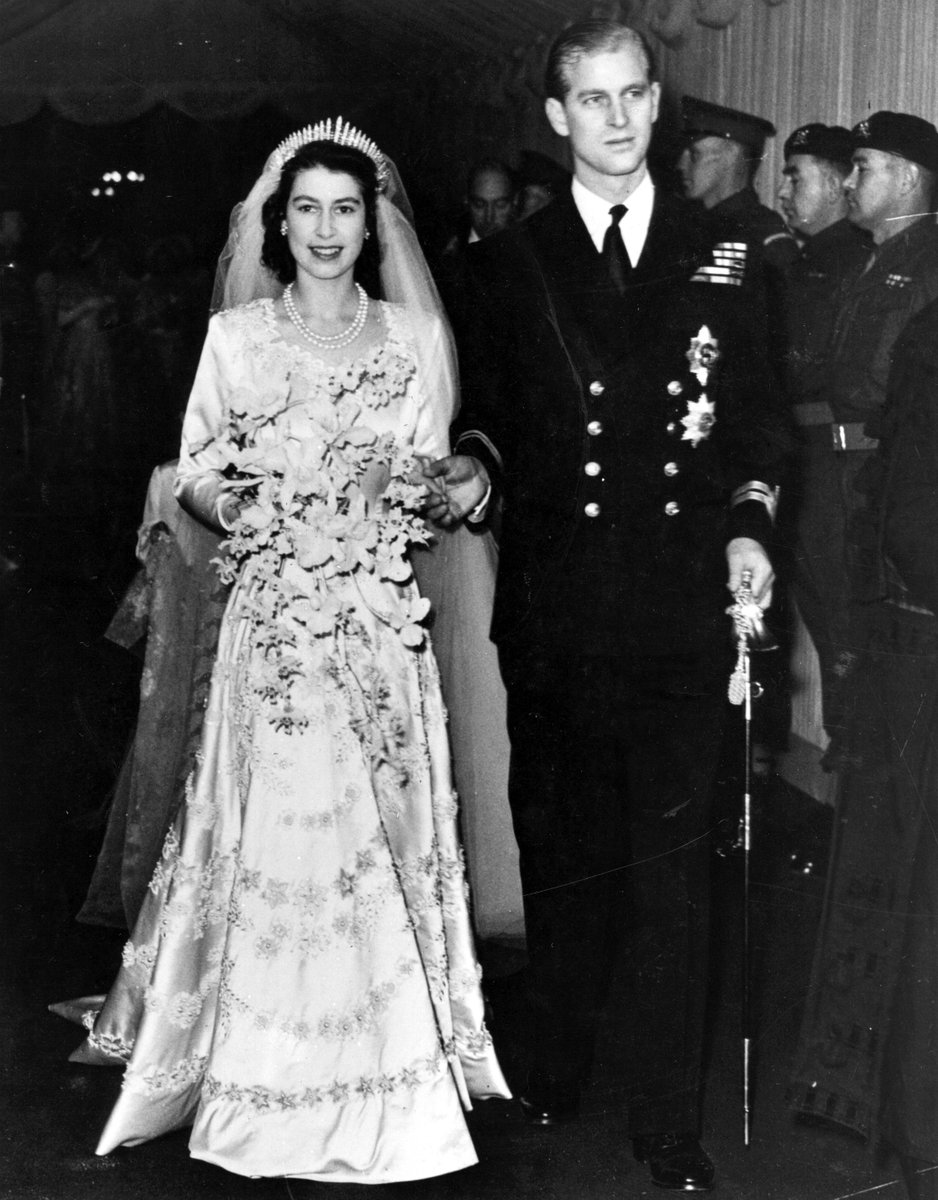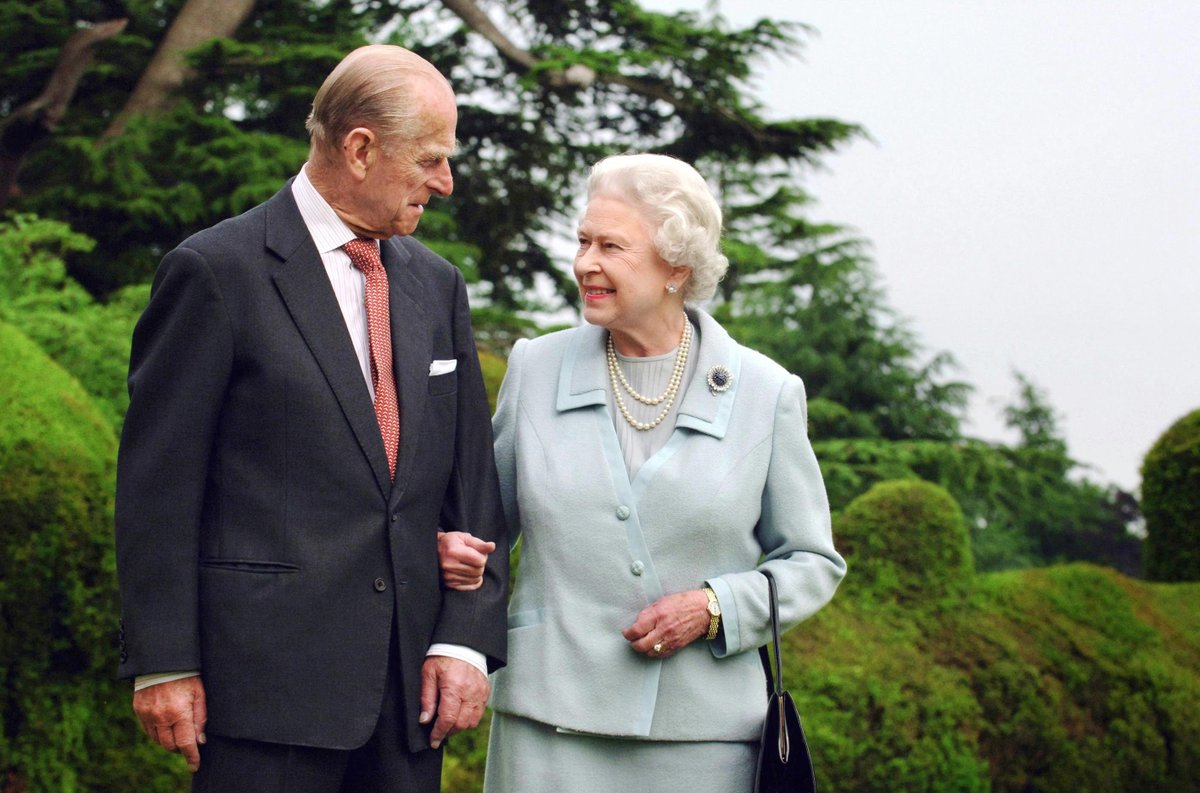In a letter to the Queen, Prince Philip wrote: ‘To have fallen in love completely and unreservedly, makes all one’s personal and even the world’s troubles seem small and petty.’
This is how he overcame family tragedy and won over the hearts of the Queen and nation.
~thread
This is how he overcame family tragedy and won over the hearts of the Queen and nation.
~thread
After the war was over, Prince Philip remained in the Far East to collect and bring home prisoners of war, arriving back in Portsmouth on 17 January 1946.
A series of unexciting home postings had left him restless after the buzz of action
A series of unexciting home postings had left him restless after the buzz of action
His home postings did allow for more frequent trips to London, and he was “always in a hurry to see Lilibet”.
According to a governess, Elizabeth began to take more trouble with her appearance and to play the tune & #39;People Will Say We’re in Love’ https://www.telegraph.co.uk/royal-family/0/prince-philip-wooed-elizabeth-nation/">https://www.telegraph.co.uk/royal-fam...
According to a governess, Elizabeth began to take more trouble with her appearance and to play the tune & #39;People Will Say We’re in Love’ https://www.telegraph.co.uk/royal-family/0/prince-philip-wooed-elizabeth-nation/">https://www.telegraph.co.uk/royal-fam...
On 29 May 1946, Prince Philip was photographed next to the Queen at a wedding but was described in the press as “a figure largely unknown to the British public”.
They tried not to be seen together but behind the scenes, the courtship was entering a new and bolder phase
They tried not to be seen together but behind the scenes, the courtship was entering a new and bolder phase
Late that summer, the Queen asked him to Balmoral for three weeks to shoot grouse and stalk. It was probably during this holiday that he proposed.
At last, he wrote to the Queen, life seemed to have a purpose
At last, he wrote to the Queen, life seemed to have a purpose
But hostility was brewing...
An ex courtier explained: “The kind of people who didn’t like Prince Philip were the kind of people who didn’t like Mountbatten. It was all bound up in a single word: German” https://www.telegraph.co.uk/royal-family/0/prince-philip-wooed-elizabeth-nation/">https://www.telegraph.co.uk/royal-fam...
An ex courtier explained: “The kind of people who didn’t like Prince Philip were the kind of people who didn’t like Mountbatten. It was all bound up in a single word: German” https://www.telegraph.co.uk/royal-family/0/prince-philip-wooed-elizabeth-nation/">https://www.telegraph.co.uk/royal-fam...
To begin with, the King and Queen [then Queen Mother] had misgivings about the match. They reportedly felt he was & #39;rough and uneducated& #39;.
But the more they got to know him, the more they liked him, especially George VI, who appreciated his forthright manner and humour
But the more they got to know him, the more they liked him, especially George VI, who appreciated his forthright manner and humour
Their engagement was announced on 9 July 1947.
At their first public appearance, the lady-in-waiting to Queen Mary thought Elizabeth looked “radiant with happiness” while Philip seemed shy.
She liked that he was wearing his shabby uniform with “the usual after-the-war look”
At their first public appearance, the lady-in-waiting to Queen Mary thought Elizabeth looked “radiant with happiness” while Philip seemed shy.
She liked that he was wearing his shabby uniform with “the usual after-the-war look”
In the years after their marriage, Philip had hoped to forge ahead towards high command in the navy and to enjoy a relatively carefree life ashore.
But the premature death of his father-in-law in 1952 precluded all this
But the premature death of his father-in-law in 1952 precluded all this
While Elizabeth mourned her father, Philip mourned the end of his free life and struggled to find a new sense of purpose.
He was 31. It was too soon for a headstrong young man to slip happily into walking a yard behind his wife at public functions
He was 31. It was too soon for a headstrong young man to slip happily into walking a yard behind his wife at public functions
Gradually and effectively, he overcame disappointment and determined to act as Elizabeth’s “eyes and ears”, getting around the country, visiting factories and coal mines, broadening her experience by proxy and keeping her informed about public opinion https://www.telegraph.co.uk/royal-family/0/prince-philip-wooed-elizabeth-nation/">https://www.telegraph.co.uk/royal-fam...
When they were obliged to move from Clarence House to Buckingham Palace, Philip broke new ground by carrying his own luggage and refusing to ring a bell to order food.
Edward Ford, a young courtier, thought his arrival was “like a breath of fresh air”
Edward Ford, a young courtier, thought his arrival was “like a breath of fresh air”

 Read on Twitter
Read on Twitter






